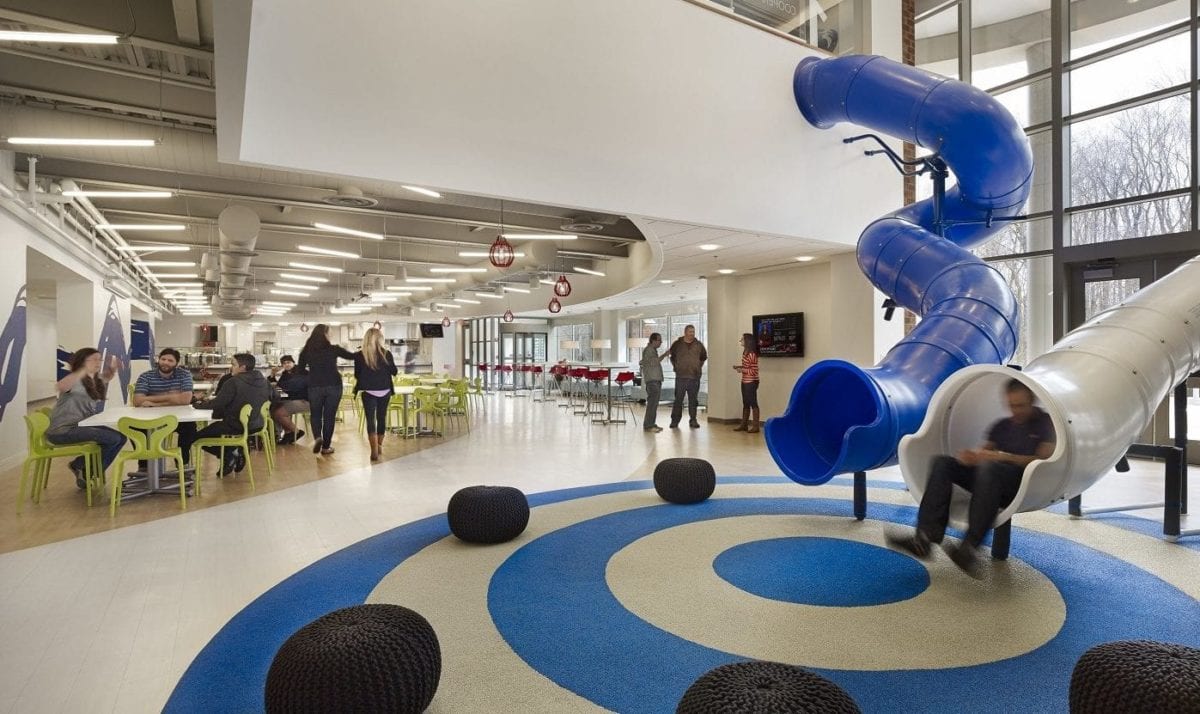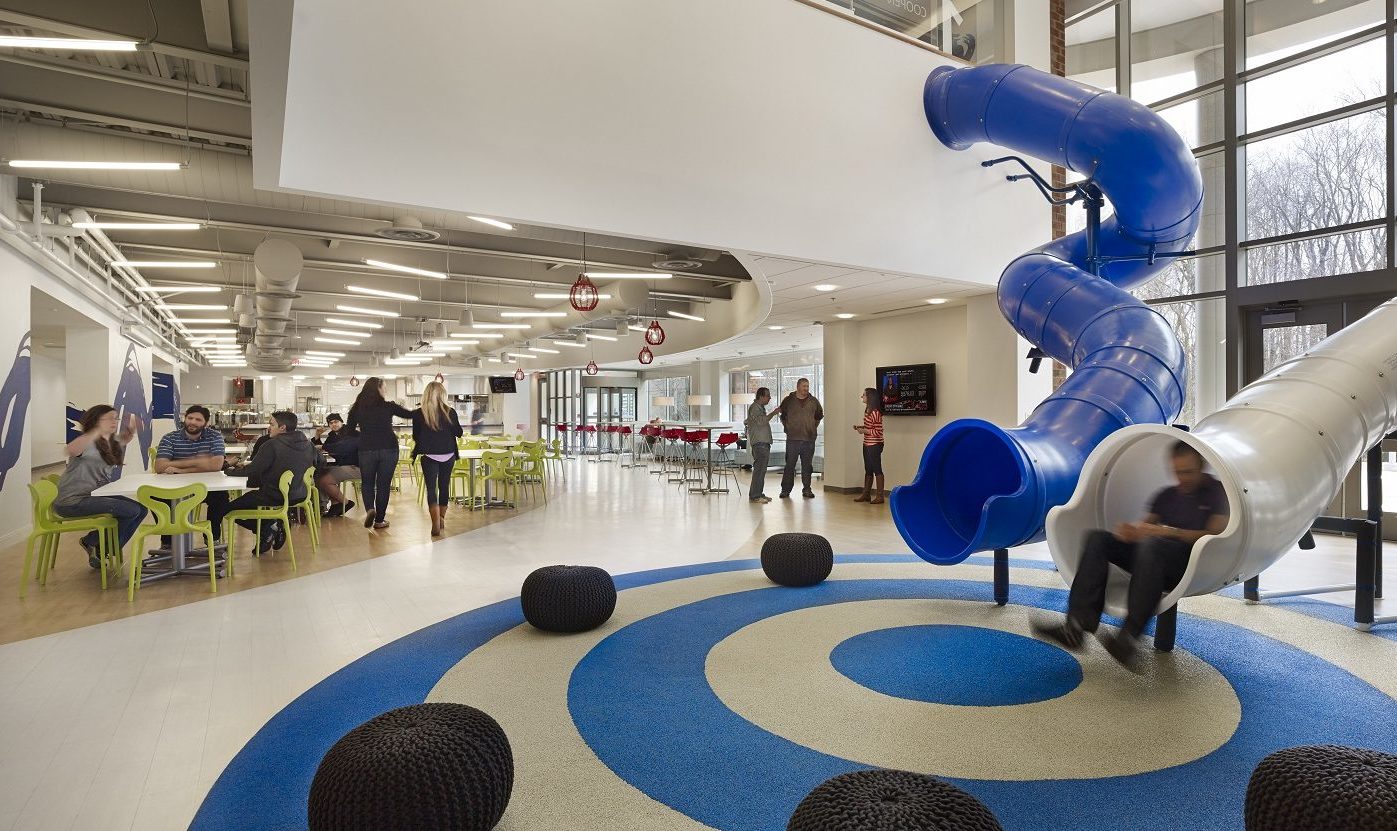That buzzwordy term “workplace culture” was initially defined to explain the habits, environment and values of a company and its relationship with its employees.
In the last few years, workplace culture has grown to include things like lunchtime learning sessions, Friday happy hours or pet-friendly policies. Startups often cite features like free snacks and coffee, open office floor plans, collaborative meeting rooms and whiteboard sessions as central to their culture.
But this year, the workplace and the culture surrounding it looks very different.
Without a choice, companies have had to say goodbye to their HQs to curb the spread of COVID-19 in their regions. Many are grappling with the possibility that this change could last the length of the pandemic — or forever.
This month, Technical.ly has been more deeply examining workplace culture through our reporting, including how to handle fear at work, mitigating work-from-home burnout and navigating coworking while distancing. For many of the people ops and HR pros we talked to this month, these decisions were a first for their careers.
Six months (and who knows how long to go) into this pandemic, what does workplace culture look like when we’ve had to abandon the physical space?
###
“There was a couple of initial weeks where we immediately went into quick pivot mode, making sure things were operational,” Erica Cohen, SVP of operations at clinical trial payment company Greenphire, told Technical.ly. “There was probably overkill on some of the management tasks like meeting too much or trying too many check ins, but you start to get a sense of what’s working and what’s not.”
When the pandemic hit, the King Of Prussia based-company sent all but its completely essential employees home for what they — like many of us — thought would be a few weeks. The company had some flexibility with its working hours and an occasional remote employee, but they were a 150-person team that reliably worked together in an office every day, Cohen said.

Greenphire staff celebrates 1 million payments through its platform (Courtesy photo)
Cohen, who’s helped shape the company culture over the last two and a half years in her role, said that togetherness was essential to the collaborative nature of the company. It was encouraged for folks to talk through strategy face to face, have potlucks and celebrate each others’ wins together often.
“All of that went away,” Cohen said. “It took us a while to get accustomed.”
Cohen is far from the only person we heard from this month who said in-person collaboration and meetings were a staple of their company’s culture. Sophia Harrison Curcio, the director of partnership development at Collingswood-based CustomED, Inc., a nonprofit that designs educational tools, experiences, programs and events for social impact, said her team was used to working virtually with clients, but not so much with each other.
“What we originally missed as a team during this time is the connection to each other and the ideas that develop through working in person that sometimes happen during those five minute ‘pass in the hallway’ moments,” Curcio said.
They’ve tried to keep their collaborative spirit alive through things like coffee chats, surprise packages in the mail for holidays, virtually sharing meals, and virtual design thinking sessions using common items from their households to build together on their screens.
The workplace culture hasn’t necessarily changed because of the forced remote work, she said — “but to keep the culture we have had to be more thoughtful and strategic.”
For some local technologists, working conditions in the pandemic have reinforced that they love being alongside their colleagues in a shared space.
Remote work isn’t a new concept for the tech world, but in 2013, when Jason Garber, COO of software company Promptworks, was building out the company with his cofounders, they made a conscious decision to have a physical office space where future employees could practice pair programing (a company staple) and work through solutions together.

Promptworks’ Center City office (Courtesy photo)
They like the ability to project something on a TV screen for the whole office, or use a physical white board during a meeting and gather people in groups to brainstorm, he said. There are versions of those tools online, but it doesn’t allow for an employee on a different team to throw an idea out at lunch like their office environment does.
“We’ve lost some of that fidelity,” Garber said. “We’re excited to go back.”
Still, they’ll likely be among the last to do so, he noted, as telework is a viable option for them for the time being and there are essential services that make sense to prioritize first in a citywide reopening strategy.
Mark Switaj, CEO of medical transportation startup Roundtrip, said that he and his team are constantly reevaluating what working situation makes sense for them. He tries to focus on one of the company’s core values: “Stay resilient.”
“There have been moments where it’s been, frankly, hard to stay resilient,” he said. “And that’s OK.”
Some of the adjustments to culture they’ve made during this time include video-optional Zoom meetings, biweekly “Corona Fridays” where the team heads out of work early, and a deliberate push to take time off to reset. Switaj said he’s been keeping a close eye on the Rt.live charts that show the rate of infection, and cautiously creating a back-to-office plan, although he’s unsure when they’ll act on it.

RoundTrip’s team on a snowy day outside WeWork NoLibs. (Courtesy photo)
While some companies are spending time making calculated decisions about when to return to their office, others have decided they’ve said goodbye to their spaces for good.
App development company OpenForge, which previously rented a private office in 1776 Rittenhouse, is instead opting for coworking at Offsite, CEO Jedidiah Weller told Technical.ly. After surveying the team, Weller found that nearly all members wanted to maintain an office space, but what they wanted had changed.
They’re pivoting from a dedicated work area to a hybrid model of using coworking offices as a design lab and meeting areas. The space is more for collaboration, socialization and use of the company equipment, like physical mobile phones for testing mobile apps, Weller said.
“Culture had a big part in it, too,” he said. “We accomplish so much more together. At the end of the day, there is simply no substitute for in-person collaboration.”
But AWeber, the email marketing software company based in Chalfont, feels differently: The company is saying goodbye to its large slide-centric, waterfall-donning HQ that opened up in 2013 for good. The company was one of the first in the area to really lean into the startup-y campus vibes with ping pong tables and eclectic, module furniture to appease its rapidly growing team.

Inside AWeber’s Chalfont offices. (Courtesy photo)
But the approximately 100-person company doesn’t need the space anymore, Chief People Officer Hope Bear told Technical.ly.
There’s a handful of reasons the decision was the right one for the company, Bear said, but chief among them was that while everyone around them was struggling to decide, they wanted to take the uncertainty out of the equation.
“We wanted to keep our team members safe, and we wanted to remove the distraction of ‘What will we do?’” she said. “We’ve decided this is just our new way of doing things and now we can focus on how we can create functional work stations for everyone.”

AWeber employees in its Chalfont HQ’s game room. (Courtesy photo)
It also meant there was less room for disruption for their customers, Bear said. Since the company made the decision in May, it’s focused on moving forward, meeting team members where they are and addressing needs like equipping home offices with all the needed supplies. And just because there isn’t a physical office space anymore doesn’t mean the team will never be together in person again, Bear said. She sees social gatherings and the option to cowork in the company’s future.
To Bear, the switch to a remote-first work has only made company culture stronger, and she believes its core values haven’t changed. In fact, she said, it’s likely made them stronger.
“Yes, we were fortunate to work in a building that’s beautiful, but our culture was never the building,” she said. “The culture is the team.”
Because they can’t rely on face-to-face interaction, she believes AWeber’s core values will strengthen in practice. Remote work will allow the team to double down on its search for a more diverse staff, as they’ll be able to hire from anywhere, she said. It will also help include third-shift workers who were often left out of after-hours events.
The best way Greephire’s Cohen said she can describe how a company can define its culture is “having something as your backbone,” she said.
It allows you to bring in new employees with an understanding of what the company is about, and have a motto to point to when anyone needs guidance. Greenphire’s motto of “all in as a team for a purpose, solving problems,” has been a north star at multiple times throughout the company’s decision making during the pandemic.
For Cohen, the people, personalities and the company’s cause is what culture boils down to — that, and showing up for your people in the way that you said you would, like celebrating wins, acknowledging a milestone or even sending a birthday card.
“Being invested in the cause is really the culture,” Cohen said. “Sure, you can have your ping pong table — we even have ping pong tables — but that’s not the culture. That’s almost just like a footnote to the culture.”

This editorial article is a part of Workplace Culture Month of Technical.ly's editorial calendar.
Before you go...
Please consider supporting Technical.ly to keep our independent journalism strong. Unlike most business-focused media outlets, we don’t have a paywall. Instead, we count on your personal and organizational support.
Join our growing Slack community
Join 5,000 tech professionals and entrepreneurs in our community Slack today!

Entrepreneurship is changing, and so is the economic development behind it

Tech Hubs’ new $210M funding leaves Baltimore and Philly off the table

Here’s what to know before using AI to craft your brand’s social media posts


